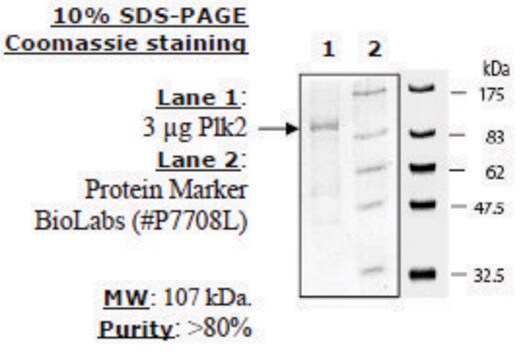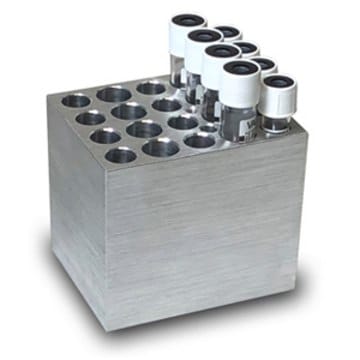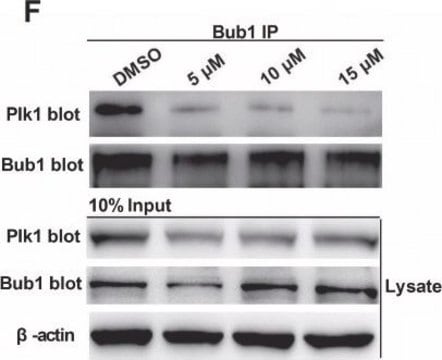SAB4500156
Anti-PLK2 antibody produced in rabbit
affinity isolated antibody
Sinonimo/i:
PLK-2, Polo-like kinase 1, Serine/threonine-protein kinase SNK, Serum-inducible kinase
Scegli un formato
390,00 €
Scegli un formato
About This Item
390,00 €
Prodotti consigliati
Origine biologica
rabbit
Livello qualitativo
Coniugato
unconjugated
Forma dell’anticorpo
affinity isolated antibody
Tipo di anticorpo
primary antibodies
Clone
polyclonal
Stato
buffered aqueous solution
PM
antigen 78 kDa
Reattività contro le specie
rat, human, mouse
Concentrazione
~1 mg/mL
tecniche
ELISA: 1:40000
western blot: 1:500-1:1000
N° accesso NCBI
N° accesso UniProt
Condizioni di spedizione
wet ice
Temperatura di conservazione
−20°C
modifica post-traduzionali bersaglio
unmodified
Informazioni sul gene
human ... PLK2(10769)
Descrizione generale
Immunogeno
Immunogen Range: 291-340
Applicazioni
Azioni biochim/fisiol
Caratteristiche e vantaggi
Stato fisico
Esclusione di responsabilità
Non trovi il prodotto giusto?
Prova il nostro Motore di ricerca dei prodotti.
Codice della classe di stoccaggio
10 - Combustible liquids
Classe di pericolosità dell'acqua (WGK)
nwg
Punto d’infiammabilità (°F)
Not applicable
Punto d’infiammabilità (°C)
Not applicable
Scegli una delle versioni più recenti:
Certificati d'analisi (COA)
Non trovi la versione di tuo interesse?
Se hai bisogno di una versione specifica, puoi cercare il certificato tramite il numero di lotto.
Possiedi già questo prodotto?
I documenti relativi ai prodotti acquistati recentemente sono disponibili nell’Archivio dei documenti.
Filtri attivi
Il team dei nostri ricercatori vanta grande esperienza in tutte le aree della ricerca quali Life Science, scienza dei materiali, sintesi chimica, cromatografia, discipline analitiche, ecc..
Contatta l'Assistenza Tecnica.







